Not easy to think about math in Summer!
Third of July, Saturday afternoon. Heavy sun, humid air. Ice cream kiosks stand out on Amur boulevard. Mathematical lyceum is empty, except for one room with six eight-graders and three mathematics teachers. This is the Math Club!
Pupils have distracted smiles and relaxed postures. This is in great contrast with a concentrated and intense face of the man stiffly standing at the marker board.
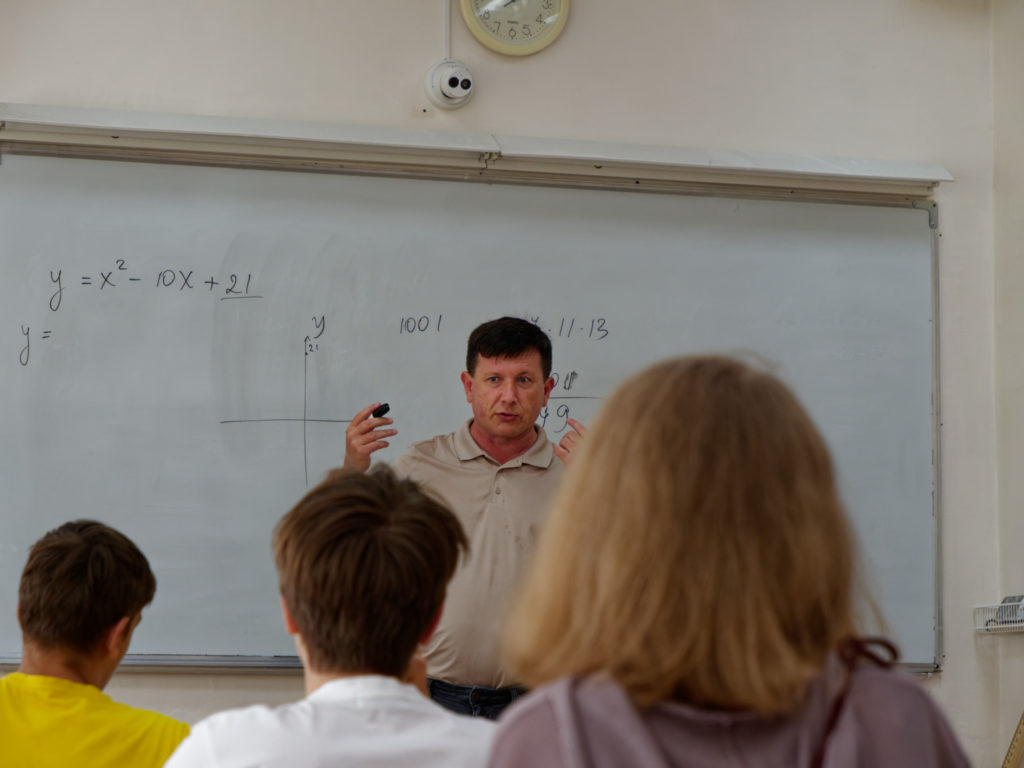
Sergey Shmarov is a stocky man in his late forties, with attentive grey eyes and expressive face. Sergey works as a math teacher in the Sirius Educational Center for Gifted Children in Sochi, and regularly comes to visit Far East. Sergey was born not far away from here, in Komsomolsk-na-Amure (Komsomolsk on Amur), 400 km up North along the Amur Rive (not far away being measured in Russian scales). His mother still lives there and he came Far East from Sochi (12 hours on plane) to stay with her for the summer. He is stopping by in Khabarovsk in order to meet Maria’s students. All of the next year, he will teach them plane geometry on Discord.
I am happy that the students can meet Sergey in person this summer. I do not want him to be for them only a voice coming from Discord, says Maria.
Sergey starts his class by the idea that in mathematics, it is sometimes very useful to look at the same thing from different perspectives. He gives examples: a quadratic polynomial can be seen as an algebraic expression but also as a parabola, a decimal number can be also written out as a product of its prime factors. Different ways of looking at things can help solve problems. This is exactly Sergey’s goal — to teach this four girls and two boys, how to solve geometry problems in order for them to be able to participate in different math olympiads in the city, the region, and maybe, the country. The goal on the other side? To eat the promised pizza (at the end of the class) and to chat.
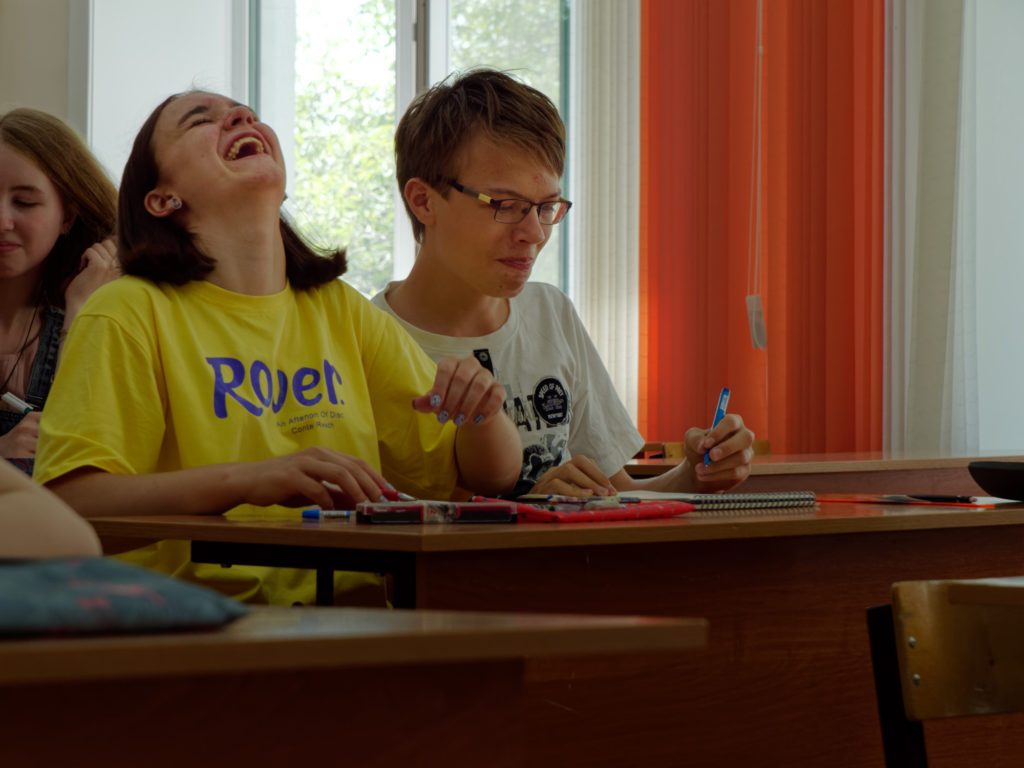
One of the boys, at the first desk, launches a provocation: “Plane geometry? And why not trigonometry? Trigonometry is much more useful!” Children are testing Sergey but he has been teaching for thirty years, he is not someone to test. Without any pause, he answers, meeting one by one the eyes of all the students in the class, as if it was a theater performance:
So, if I understand correctly, you are telling me what you think would be more useful to study at my course? That’s impressive! “
Sergey has momentarily gained respect of the students. But still… it is not easy to think about math in Summer!
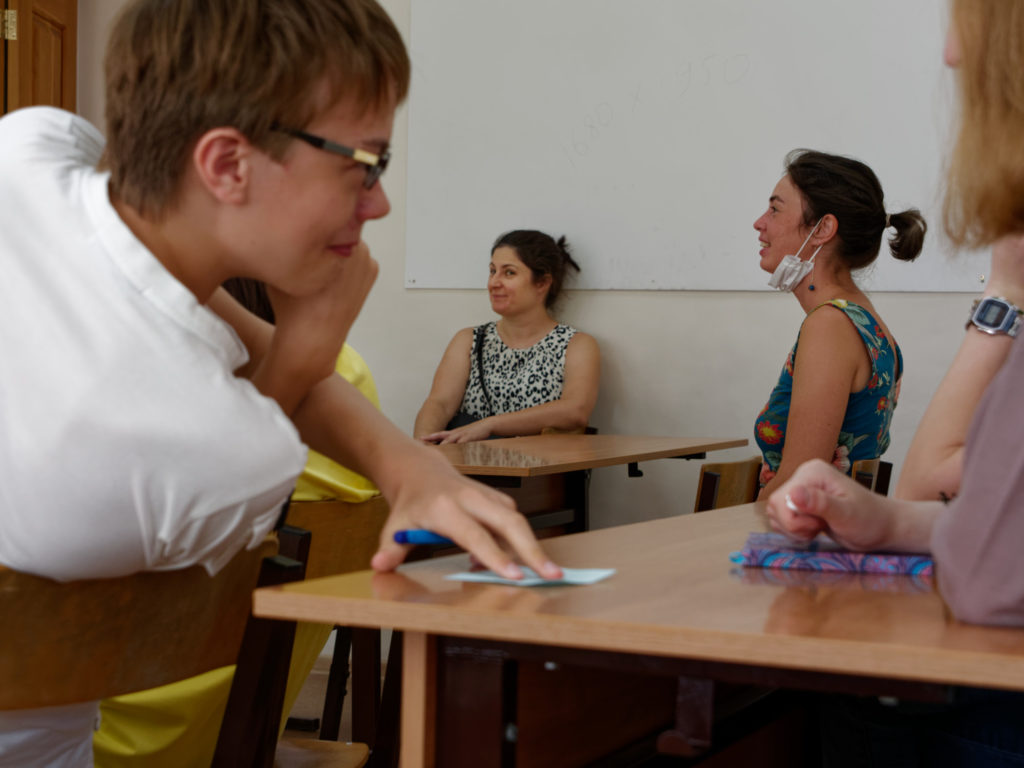
Arkardy the rhombus
Maria and her colleagues propose math classes to many school students of Khabarovsk, from 10 year olds to 17 year olds. But “these six are the most chatty of all“, she comments. She didn’t tell the particularity of this group to Sergey before the class, she lets him discover it himself. It took him five minutes to understand…
Geometry or trigonometry, I understand that pizza is anyways, the most important of all!“, he winks at the children.
After the class, Sergey will tell to Maria that he is sad that these students are more interested in socializing than in solving problems. But the goal is not to make from every student somebody who is obsessed with mathematics, just to give a taste of critical thinking and a joy of solving problems. Everybody is welcome to the Math Club! Students are clearly enjoying, everybody is smiling.
The theme of the class is translation: from the language of angles to that of the arcs in the circle. The first warm-up problem concerns orthocenters, they have seen them already with Maria, and one of the girls solves the problem quickly, others follow.
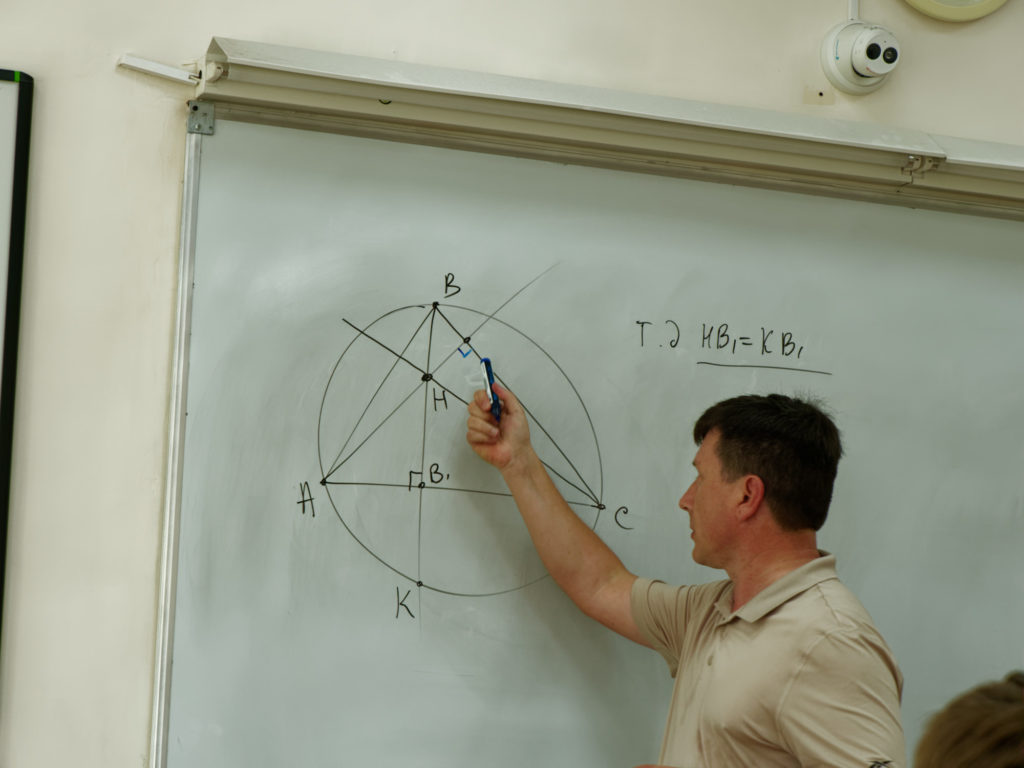
Then, Sergey explains how every angle inside the circle is expressed in terms of arcs that its edges cut out in the circle. The class continues, next problem: finding the sum of the angles in the star. Sergey proposes a very surprising bonus construction: draw any circle containing the star, and make the calculation of angles using the measures of the obtained arcs on this circle. One of the boys asks, “but how to think about it yourself?!” and Sergey says, “some things are hard to think of, you have to learn them from others” at the Math Club!
The class ends with a beautiful problem, Maria says. The goal is to prove that some quadrilateral is a rhombus. Sergey explains an old idea, coming from Egypt : “to be able to work with objects, one has first to name them, ABCD for the quadrilateral, for example.” The students react directly.
Andrey is not bad but Arkardy is a much better name for a rhombus! Arkardy the rhombus!”
Thinking about problems and chatting at the same time, students do the work, and the solutions emerge little by little.
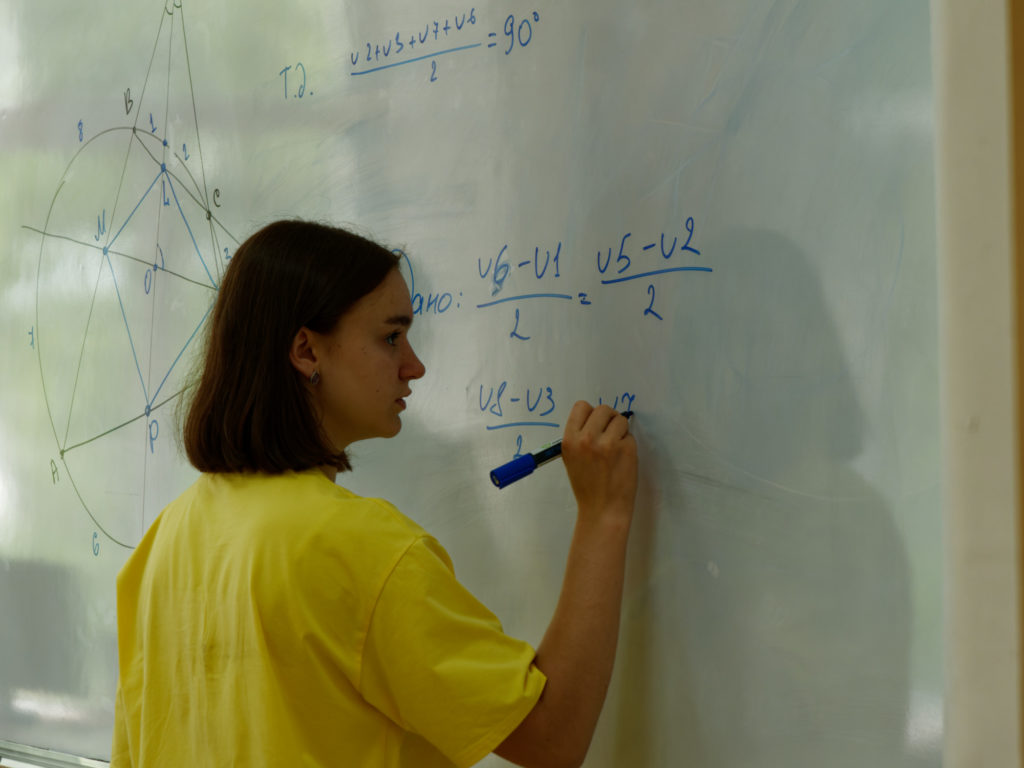
Not everything can be solved by money
Almost fifteen years ago, Maria has started her first mathematical club in Khabarovsk in the Mathematical lyceum. She didn’t know “how to do it as a pro“, didn’t know about a famous “sheet system” yet (at each class the students are given a list of problems of rising difficulty on the same subject, working on the same set of techniques). “I was just solving math problems with children“, she says. Since her start in 2008, many things have changed. Today, with a team of enthusiast colleagues, Maria guides three different math clubs in Khabarovsk, for all ages of students in every club, two of them in strong math schools and one, since 2017, for the Khabarovsk city. “The math olympiad community in Khabarovsk is growing but the system is not yet established here yet, she says, and lots of work has to be done.“
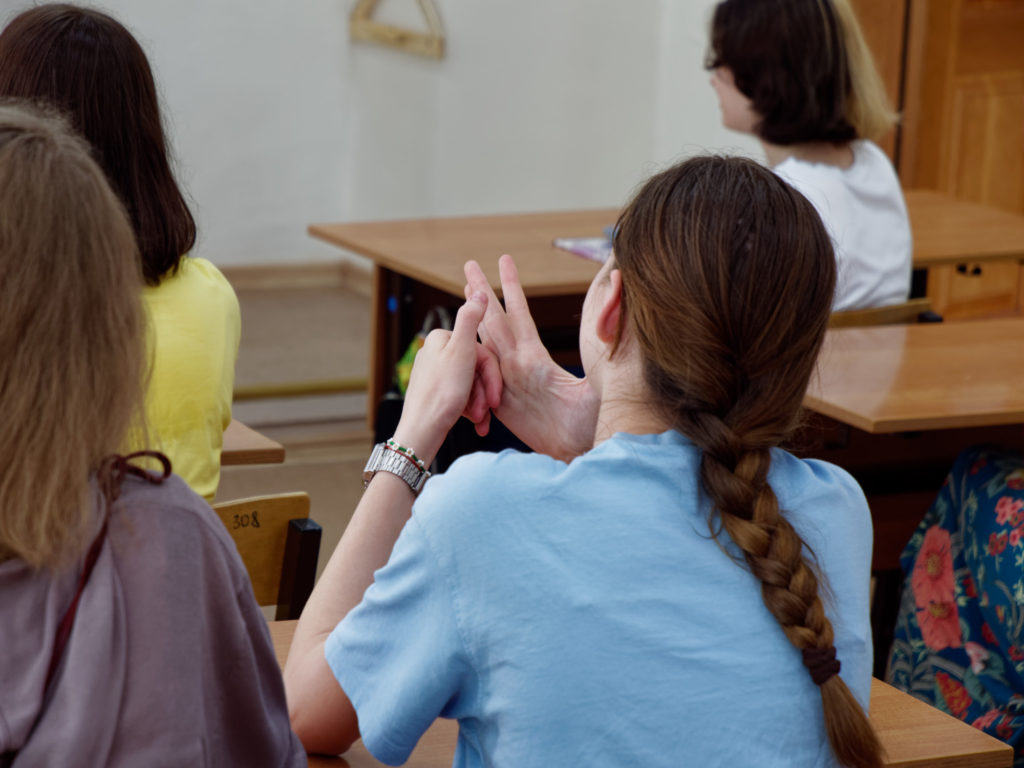
This is not only the question of salaries. Not everything can be solved by money. The problem is that here it is not like in Moscow or Saint Petersburg where any student from the mathematical faculty can teach at a math club, we have trouble finding people who want and can teach. I see two ways of solving this: either finding young people with bright minds, motivated to work with children, with no necessary mathematical background, and to speed-teach them solving olympiad problems; either to call for math teachers via extra qualification courses on olympiad math that they have every five years. Some teachers are very motivated, and stay six hours listening to me about olympiad mathematics. Some say, why do I need your olympiads, if I already have 50 hours of working hours per week?”
Sergey and Maria
Sergey and Maria are both from the Far East and both very active in the mathematical education in Russia. They met around ten years ago, when they were both examinators at the regional (Far East) level of the All-Russian Mathematics Olympiad.
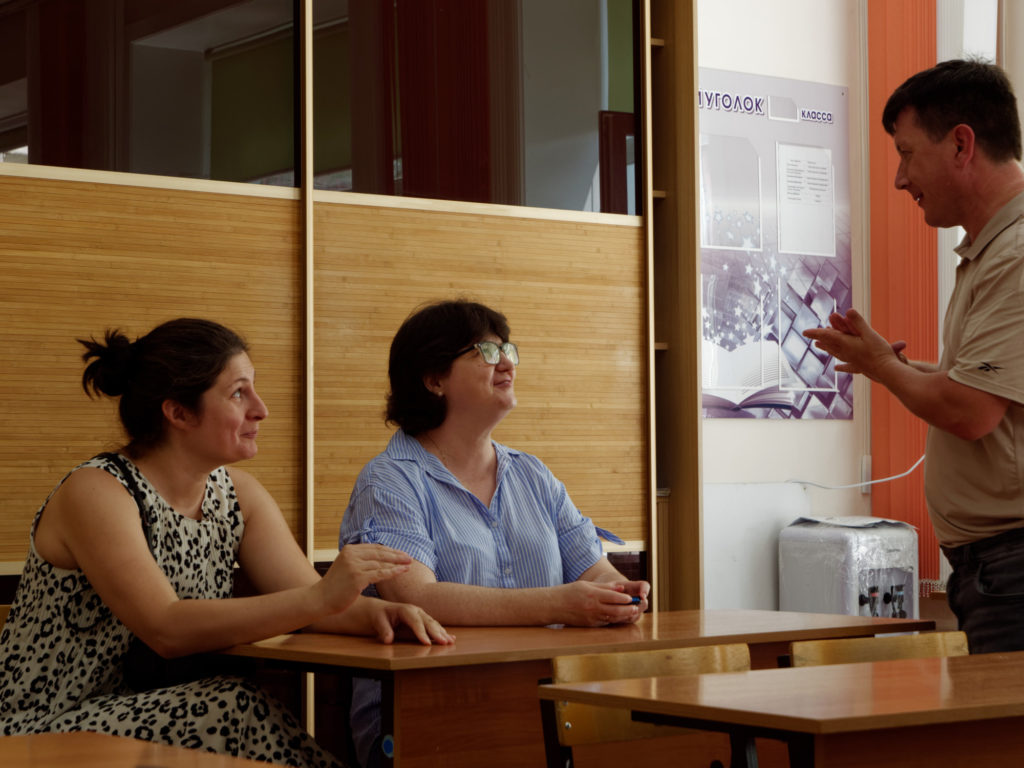
Meeting Sergey was one of the important steps for her path as an olympiad math teacher, Maria says. In particular, he taught her the existence of the site problems.ru where for every theme (as logic, algebra, geometry, combinatorics) and every difficulty, one can find a list of original problems from olympiads and math clubs over all the country, which was an amazing revelation for her.
Sergey started his PhD in topology in Moscow Pedagogical University but then came back to Komsomolsk-na-Amure to become a math teacher. Teaching math is what he wants and knows how to do, his mission, he says. He taught in Komsomolsk for a long time, and got tired from the administrative work that teachers need to do, and went to work in Sirius, where teachers get much more liberty. “That’s a big loss for Far East, Maria says, that Sergey left to work in Sirius. But I am very happy that he always come back — to participate in the olympiads, or to teach a course. Not everybody does.“
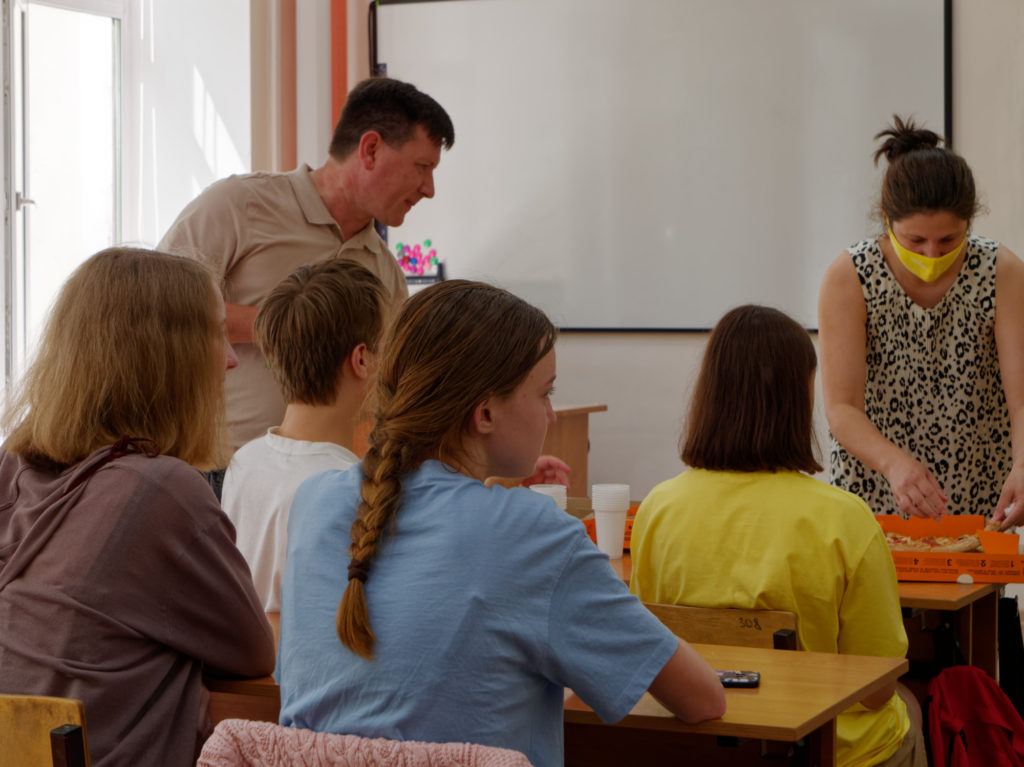
Maria advances mathematical education in Khabarovsk in an impressive way. That’s what she answers to the question why this matters.
My goal as a teacher is to give every student as many choices as possible for their future. Our goal is to teach them mathematics but their goal is to be happy, and I want to support them in this goal.
